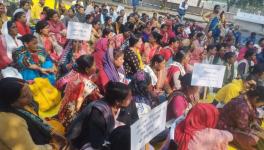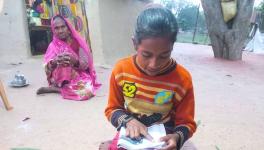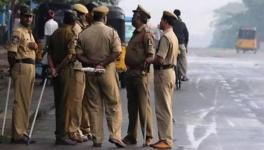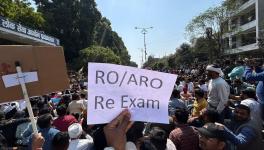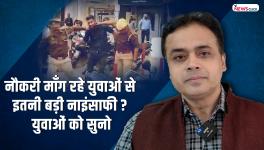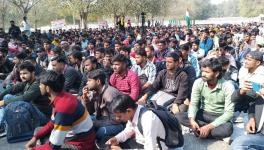From Looking for Hanuman’s Hair to Filling Wells, People Fall Prey to Superstitions Amid COVID-19 Crisis
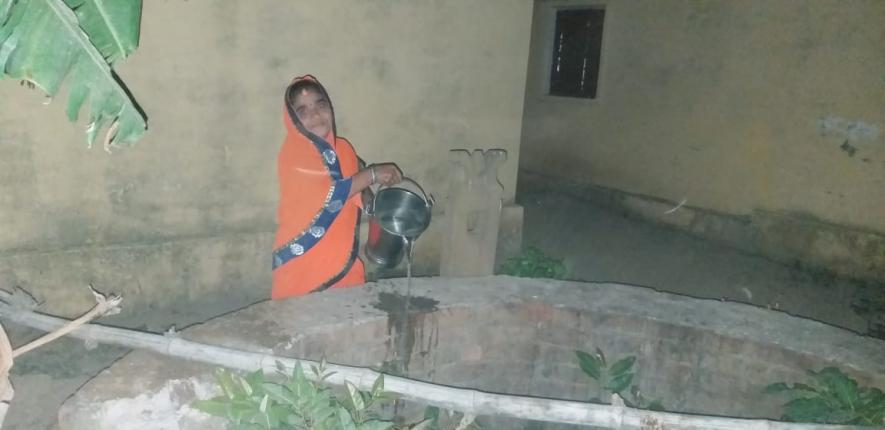
Practice of pouring water into a well to keep family "safe from coronavirus"
Dhawa (Lucknow): Shimla Yadav, 29, a mother of two kids, wakes up every morning at 3 am to perform a special pooja which, she was told, will protect her family from the dreaded novel coronavirus disease.
Shimla, in conversation with NewsClick, said that she was told by her sister-in-law, who lives in Mau district, that performing the pooja, lighting up a lamp of desi ghee every morning and evening will keep COVID-19 away.
“I have two kids and a husband in my family and it is solely my responsibility to protect them from this virus, which has come from eating animals. I believe in God and in my prayers, I apologise to God for humans eating the animals,” Shimla says.
The mother of two kids says she has been doing it since February and it has been the main reason that her family is safe. “My husband is a driver and he has been on the road ferrying passengers before the lockdown was imposed. My prayers to God are protecting us from this disease and I will continue to do it,” she says, adding, “I am not allowing my kids and husband to step out of the house and I am doing my every bit to save them through pooja.”
Bhairo Singh, the village headman of Dhawa village, explained: “Things come and go, but one thing that remains with the Indians is their faith in the God and also superstitions. But obeying the government, the lockdown implemented by it is the need of the hour and I have been making sure that protocols are followed. We have also started announcements regarding staying inside homes through loudspeakers installed at temples and other places.”
Like many other countries, superstitious theories are not uncommon in India. Many such theories have surfaced in the wake of the coronavirus pandemic as well. In many villages, special prayers have been performed.
Premkala Devi, about 38 years old, a resident of Jaunpur village, says that she got to know that lighting lamps and pouring water into a well will protect the family from this disease.
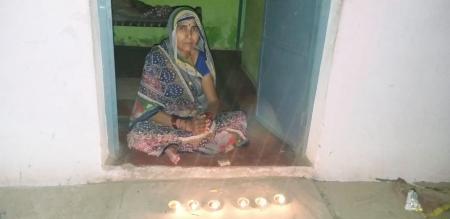
Superstition of lighting diyas to "protect the family"
“I have received information from my relatives via WhatsApp which says you should light one diya each per sibling of yours. You are also supposed to pour that many buckets of water into a well as well. [If one has three siblings, they’d be asked to light three diyas and pour three buckets of water into a well.] I have been doing this for my family,” she said, adding, “a few days ago, my sister who lives in Mumbai, Maharashtra, called me and asked to search for a certain kind of hair. If you find it, then it belongs to Lord Hanuman. Now, we have to dip the hair in water and sprinkle that in the entire home, as it will keep the coronavirus away. I tried finding the hair, but could not find one.”
Agra-based social activist Naresh Paras says that a lot of misconceptions have taken roots in the minds of the people because of WhatsApp forwards and also word of mouth.
“The government should immediately take cognisance of such superstitions because if people gather at wells, then social distancing will not be maintained and it will increase the risk. For people in the villages, the government with the help of the local administration and the village panchayat, should invite community volunteers who can spread awareness among the villagers and even inform the government if things are going in another direction. Because it is very important to keep people inside their homes in order to flatten the curve of the COVID-19 pandemic,” he said.
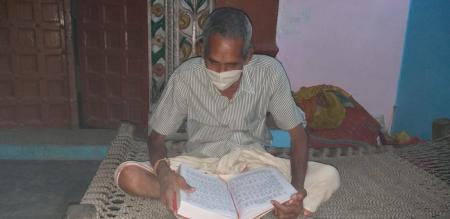
People seek solution to the COVID-19 crisis in prayers and pooja
“Pooja path, namaz apne gharo me rahkar kariye aap log. Mandir-masjid par aane ki jarurat nahi hai. Samajik doori banaye rakhne me sahyog kariye aur ghar se tabhi nikaliye jab bahut jaroori ho (Pray from your homes, there is no need to visit temples or mosques. Help in maintaining social distancing and step out of your house only when it is an emergency),” was one of the messages being announced by the priest of the Durga Shakti temple in Dhawa village in a bid to keep people at home.
“Afwaho ka bazaar garam hai, aap log dhyan dijiye ke gaon wale mandir, kue ya kahi bhi bheed na lagaane paaye (The village is rife with rumours. Please ensure that villagers do not throng any temple, well or any other place,” was one of the messages transmitted on the wireless communication system of Uttar Pradesh Police a few days ago after they came to know about superstitions being followed to keep the coronavirus away.
Other than dealing with the lockdown violators, ensuring help to the needy and patrolling, the police in the Hindi belt are also trying to make people understand the importance of social distancing and science.
Sharad Patel, a social activist, said that police alone are insufficient to deal with such issues because they are overburdened.
“Practices like these are also being followed in slums along with suburbs or rural areas. People venturing out to go to and other places to offer prayers may result in community transmission and it can damage the efforts being done to contain the pandemic. The need is to raise awareness and make people understand the importance of science, but it will be a difficult task because people are not educated in areas where these things are happening. The government should do something on war footing to stop these superstitions in the country,” he said.
Dr Vivek Tripathi, CEO at Vidhya Hospital situated in the suburbs of Lucknow, said, “It is okay to have faith in God but it is also necessary to obey the guidelines issued. Once they step out, all the efforts go in vain. The administrative authorities should take the help of village panchayat, ASHA workers and even private hospitals to curb the rate of patients falling prey to the coronavirus.”
So far, the Northern Indian state has seen 660 confirmed cases of COVID-19 with five deaths and 50 recoveries.
Also read: Bihar: Reverse Migrants Engage in Rabi Harvest to Earn Livelihoo
Get the latest reports & analysis with people's perspective on Protests, movements & deep analytical videos, discussions of the current affairs in your Telegram app. Subscribe to NewsClick's Telegram channel & get Real-Time updates on stories, as they get published on our website.









